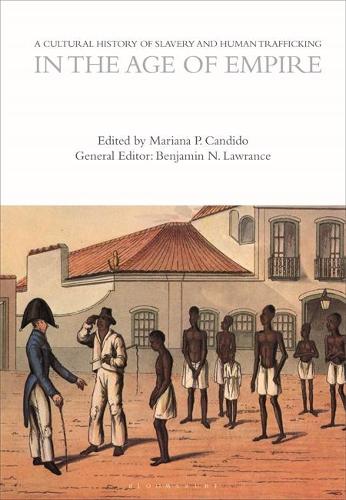
A Cultural History of Slavery and Human Trafficking in the Age of Empire
(Hardback)
Publishing Details
A Cultural History of Slavery and Human Trafficking in the Age of Empire
By (Author) Associate Professor Mariana P. Candido
Series edited by Professor Benjamin N. Lawrance
Bloomsbury Publishing PLC
Bloomsbury Academic
26th December 2024
United Kingdom
Classifications
Tertiary Education
Non Fiction
Slavery, enslaved persons and abolition of slavery
Physical Properties
Hardback
224
Width 169mm, Height 244mm
Description
The Age of Empire was also the age of enslavement. During the 1700-1900 period, the slave trade created a global system of commerce, where merchants, commodities, and work force circulates between Asia, Africa, Europe, Oceania, and the Americas. No continent was spared or excluded from engaging on the human trafficking and coerced labor. Goods and crops produced in different territories moved around the world, fuelling consumers demand and connecting merchant communities. African enslaved labor produced sugar, tobacco, and coffee, among other crops, that supplied the cafes, taverns, and shops in Paris, Lisbon, Luanda, Philadelphia, Cape Town, or Cairo. Chinese tea was consumed in Zanzibar, London, and Timbuktu, in a clear indication that crops, consumption patterns, and people were connected during the Age of Empires. Authors in this volume examine the 1700-1900 period, including the expansion of human trafficking. Slavery, capitalism, and imperialism were compatible and interrelated, despite earlier interpretations that portrayed slavery as incompatible or less capable of producing labor output. Agricultural output, labor input, and consumer interests dominated much of the political and economic interests of the elites during the Age of Empire. In this context of change and transformations, slavery and freedom were defined and redefined throughout the 1700-1900 period. These redefinitions took place in Europe as well as in the colonial political economies in Asia, Africa, and the Americas.
Author Bio
Mariana P. Candido is the Winship Distinguished Research Professor of History, Emory University, USA. She is the author of Wealth Land and Property in Angola: A History of Dispossession, Slavery, and Inequality (2022); An African Slaving Port and the Atlantic World (2013); and Fronteras de esclavizacin: esclavityd, comercio e identidad en Benguela, 1780-1850 (2011). She has co-edited African Women in the Atlantic World. Property, Vulnerability and Mobility, 1680-1880 (2019); Laos Atlnticos: frica e africanus durante a era do comrcio transatlntico de escravos (2017) and Crossing Memories: Slavery and the African Diaspora (2011)
